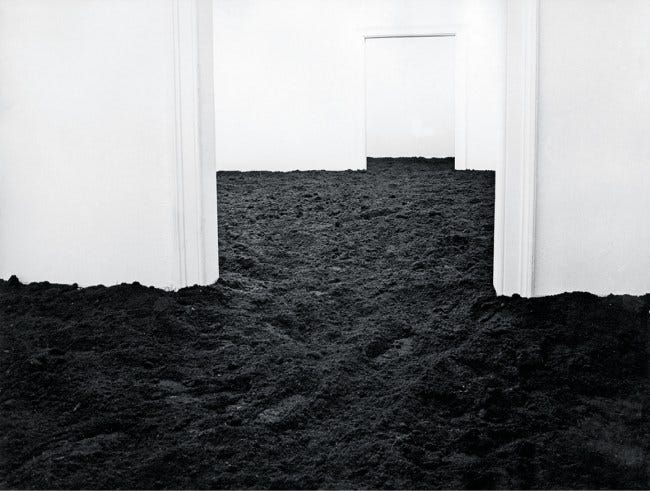Inside Addiction, Part 2: Embracing Duality
Finding space for both sickness and progress in the same story.
Two opposing things being true at the same time was a principle I could never quite grasp. You could be grieving the person you love most in the world and laughing with an old friend in the same breath. You could love someone so deeply and hate the way they treat you, be wronged by a person and feel pity for them. You could want to stay so desperately and know the kindest thing to do would be to leave.
You could be a triathlete and a heavy drinker, a mother who isn’t maternal, or a yoga teacher running on what’s stocked in the glove box.
You can feel relief that something is over and still mourn its absence.
Be highly capable and completely overwhelmed.
Proud of how far you’ve come and ashamed of how long it took.
You can feel better and still not feel well.
Duality is having two parts, often opposites, that coexist within a single thing, person, or concept. These parts can be in tension or contrast with each other, yet both remain true and present at the same time. Duality often shows up in emotional, moral, or identity-based contradictions — for example: loving someone and resenting them, or craving solitude and connection. It resists binary thinking and allows space for paradox.
It is not our differences that divide us. It is our inability to recognise, accept, and celebrate those differences.
—Audre Lorde
For a long time, I didn’t see this clearly in myself. If parts of me weren’t the way I wanted, or were harmful, I believed all of me was ‘wrong’. I tried to make up for those parts by doing good — working hard, being likeable, helping others. I was trying to offset the characteristics I didn’t like about myself by doing things I considered ‘good’.
I grew up surrounded by strong messaging that said the most important thing is how it looks. For a long time, I believed that — maybe I still do, a little. As long as I was thin, pretty, and well presented, I was doing okay. I thought being able to go out all night and run 10k the next day, starving myself in the week then binging on the weekend, or having a bender and turning up to hot yoga on Monday morning somehow counteracted the behaviour I felt ashamed of.
And as the scales started to lean toward the side I’d furiously been trying to disguise, I fell apart completely. My disease was on display for everyone to see. I’d been hiding it, leading a double life, because I believed nobody would love me if they knew.

It turned out to be the opposite. After having the hard conversations with the people I love, I listened as they told me how I’d hurt them — how my lying had fractured their trust. But most importantly, they still loved me. They still wanted to see me succeed.
So I set about doing the work to get better, bit by bit. My goals were simple:
Make it to Christmas alive.
Do the next right thing every day, no matter who was looking.
Accepting that I could be both sick and improving, succeeding and failing, changed everything. It meant I didn’t have to erase parts of myself or pretend to be perfect. I could hold my mistakes and my progress at the same time.
We’re taught to aim for clarity — choose a side, pick a label, be easy to define. We see it everywhere: in politics, gender, sexuality, even in how we talk about mental health or addiction. Certainty is praised — it makes things easier to explain, and sort. Ambiguity is often treated as indecision, instability, or a lack of credibility. It implies there is a correct way and a wrong way of being.
I’ve always thought self-righteousness is one of the most dangerous traits a person can have. When we believe our way is the right way — the only way — it becomes easy to justify harm.
So what happens when that same self-righteousness turns inward?
What happens when the part of you that craves clarity decides there’s only one acceptable version of yourself — and the rest needs to be cut out? When your contradictions are treated as flaws to fix?
It’s a subtle kind of self-rejection. You end up performing the version of yourself that feels most acceptable, and pushing away anything that doesn’t fit.
Most of us are a mix. Conflicted and full of contradictions. We love people who’ve hurt us. We feel joy in times of grief. We want opposite things at the same time.
If this feels true to you — I’d love to know. What contradictions have you had to live with? What part of yourself have you stopped trying to fix?
Reply to this email or leave a comment. I’ll share a few (anonymously if you prefer) in a future letter.
“Do I contradict myself?
Very well, then I contradict myself,
(I am large, I contain multitudes.)”
— Walt Whitman








I’ve always felt like a walking breathing contradiction! Well said Char! 💛